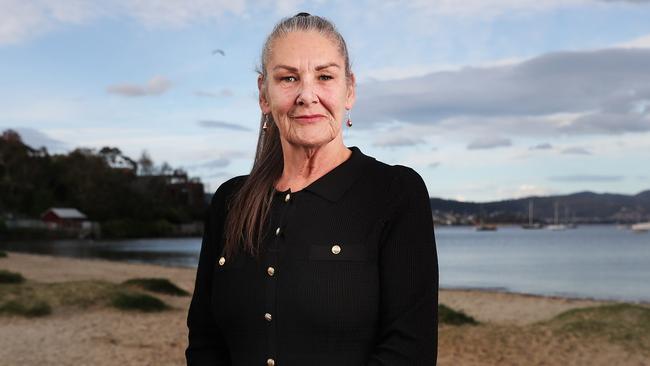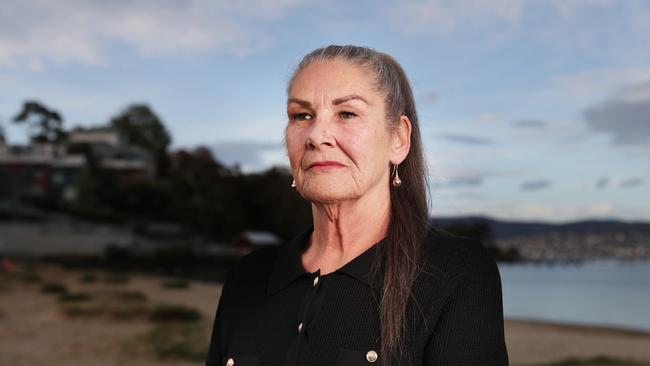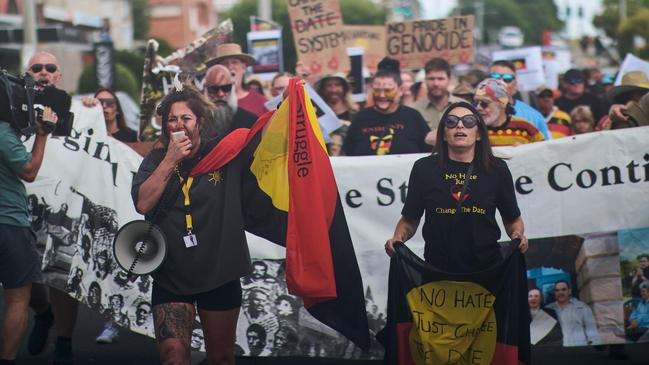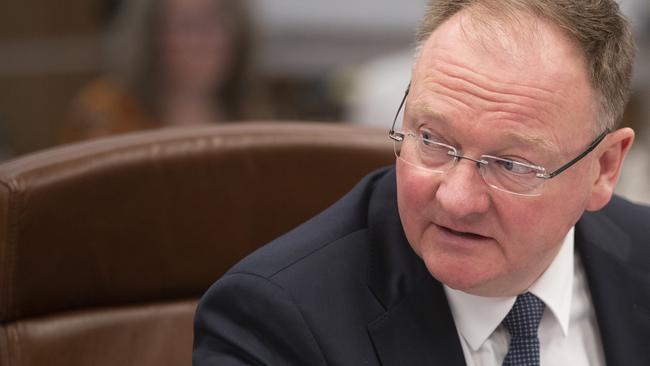Closing the gap Tasmania: TAC’s Tanya Harper says state is missing a golden opportunity
Tasmania is “predominantly performing above the national average” against 13 of 17 closing the gap targets – but scratch below the surface and the picture is far less rosy, the TAC says.

Tasmania
Don't miss out on the headlines from Tasmania. Followed categories will be added to My News.
On the face of it, Tasmania is doing better at closing the gap than almost any other jurisdiction in Australia.
According to the state’s latest Closing the Gap Annual Report 2021–22, Tasmania is “predominantly performing above the national average against 13 targets,” out of a total of 17.
Tasmania has already met two of the targets: increase the proportion of children enrolled in early childhood education to 95 per cent, and increase the proportion of people living in appropriately sized (not overcrowded) housing to 88 per cent.
According to the report, many measures are improving, including the employment of people aged 25–64, children being on-track developmentally, achieving a Year 12 education, and obtaining a tertiary degree or qualification.
On some measures, though, Tasmania is backsliding. They include the proportion of children in out-of-home care and adult incarceration rates.
However, the statistics may be misleading, according to Tasmanian Aboriginal Centre’s closing the gap policy officer Tanya Harper, a Flinders Island-born member of the Stolen Generation who lived as a ward of the state until the age of 18.

“I think Tasmania is doing very poorly at closing the gap,” she said.
“We have the potential to be leaders in the nation because we are such a small jurisdiction.
“Homeless people, Aboriginal youths in detention – the numbers are relatively small, we could solve those issues far easier than other jurisdictions.
“With adequate resourcing, we could close that gap.”
As an example of how she believes the statistics paints a rosier picture than what exists on the ground, she pointed to the met target of people in appropriately sized housing.
“Here in Tasmania, we don’t have an issue with the appropriate size of housing, overcrowding – we have an overall issue with the number of houses and housing options available for Aboriginal people, not their sizes,” Ms Harper said.
“We can skew the data to make it look like a wonderful job done, when in fact their target didn’t necessarily reflect on the needs of Aboriginal people in Tasmania.”
A key upcoming opportunity to improve the lot of Aboriginal Tasmanians is the next Closing the Gap Implementation Plan, Ms Harper said.
“We want there to be true, genuine and challenging actions that will make a difference,” she said.
What was needed most, she said, was the courage of governments to devolve power to Aboriginal communities and groups to self-determine their future.

“Closing the gap is really about the transfer of power and control from the government to community-based organisations and palawa people,” Ms Harper said.
“That’s a big ask for governments to get their head around, but that’s what they need to do.”
One of the most pressing areas of reform is better engagement with the justice system, Ms Harper said.
She called for the return of control of the Tasmanian Aboriginal Legal Service to the TAC, the funding of justice engagement officers in each regional TAC office, and a new, wholistic youth diversion program.

“There was a decision [in 2015] for a Victorian legal firm to be funded to provide services to the palawa. It needs to be returned to TAC as the peak body for closing the gap and an experienced legal services provider,” Ms Harper said.
“What we’re finding is that many palawa people aren’t comfortable accessing TALS.”
TALS vehemently denies the characterisation of itself as a “Victorian legal firm,” noting its local board, Aboriginal control and governance by the Aboriginal Corporation of Tasmanian Legal Services.
Other actions Ms Harper suggested would help include the establishment of an Aboriginal housing authority and a comprehensive audit of funding at all levels to see what programs are delivering bang for buck.
While Aboriginal outcomes remain poorer across all measures when compared to the state as a whole, Ms Harper said the most positive development she has seen in her lifetime was a new-found cultural pride.
“We’ve moved from that sense of disconnectedness and perhaps shame across some generations to a place where our children are now being wrapped around from pre-birth into cultural activities,” Ms Harper said.
“Kids are hearing their language before they are born, then beginning to speak their language. “They’re being connected to their country, their land, seas, waterways.
“Kids are carried in our street marches before they’re born and then long after.
“They grow up deeply embedded in their culture and community. They are more likely to reach their full potential because they develop a strong sense of their identity and where they fit into things.”
Aboriginal Affairs Minister Roger Jaensch said the government recognised that real change could only come from building the capacity of Aboriginal community-controlled organisations.
“[We are] committed to working in partnership with Tasmanian Aboriginal people and exploring new ways to bring Tasmanian Aboriginal voices into decision-making and co-design of programs and services,” he said.
Mr Jaensch said the government was fulfilling its commitments under the National Partnership Agreement on Closing the Gap.
Education, employment key to breaking cycle of disadvantage
For Aunty Judith-Rose Thomas, a respected Launceston artist from the Plangermaireener Nation in the state’s North-East, education and employment opportunities for Aboriginal youth are the keys to breaking the cycle of intergenerational disadvantage.
Aunty Judith-Rose, who possesses two bachelors degrees, one with honours, and a master’s degree, knows as well as any the transformative power of education.
“One of my young nephews started to do an Arts/Law degree, I said to him one day what encouraged you to go to uni, and he said, aunty you did,” she said.
It’s a trend she’s seen across the wider Aboriginal community.
“I have seen a lot more of our people going into education, university – doing something constructive with their lives,” Aunty Judith-Rose said.

For those not in education, a steady job – Aunty Judith-Rose has spent much of her career teaching generations of children to paint, in addition to her studio work – was the best way to close the gap and build a base from which future generations could succeed, she said.
“There are so many young ones out there who want to work and there’s just no work for them,” she said.
Aunty Judith-Rose said the increasing celebration of Aboriginal culture and pride its people take in their heritage has been a positive development.
Participating in culture takes Aboriginal Tasmanians to “another dimension and it takes them away from their worries and their woes, it gives them a wonderful sense of pride that we all have,” she said.
Closing the gap will be a multi-generational project and require the rebuilding of trust between Aboriginals and governments across the nation after centuries of conflict, Aunty Judith-Rose believes.
“We don’t trust a lot of people. When we hear what politicians have to say, we’re very wary,” she said.
“How can we advance if we don’t trust and believe? There is a lot who don’t believe, that’s big barrier and a big hurdle for politicians to get over.”





